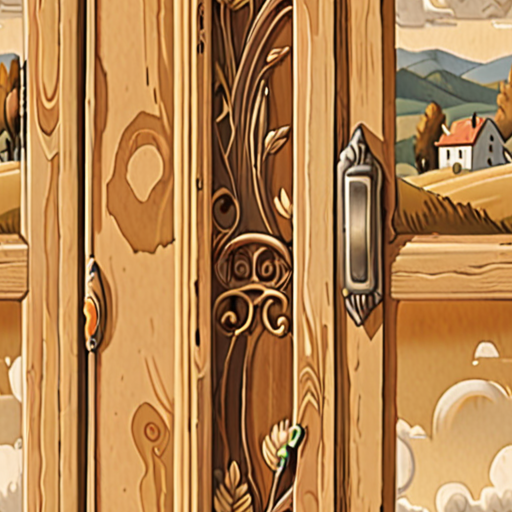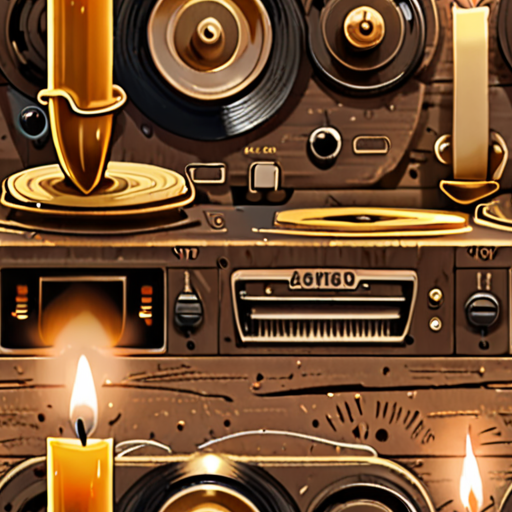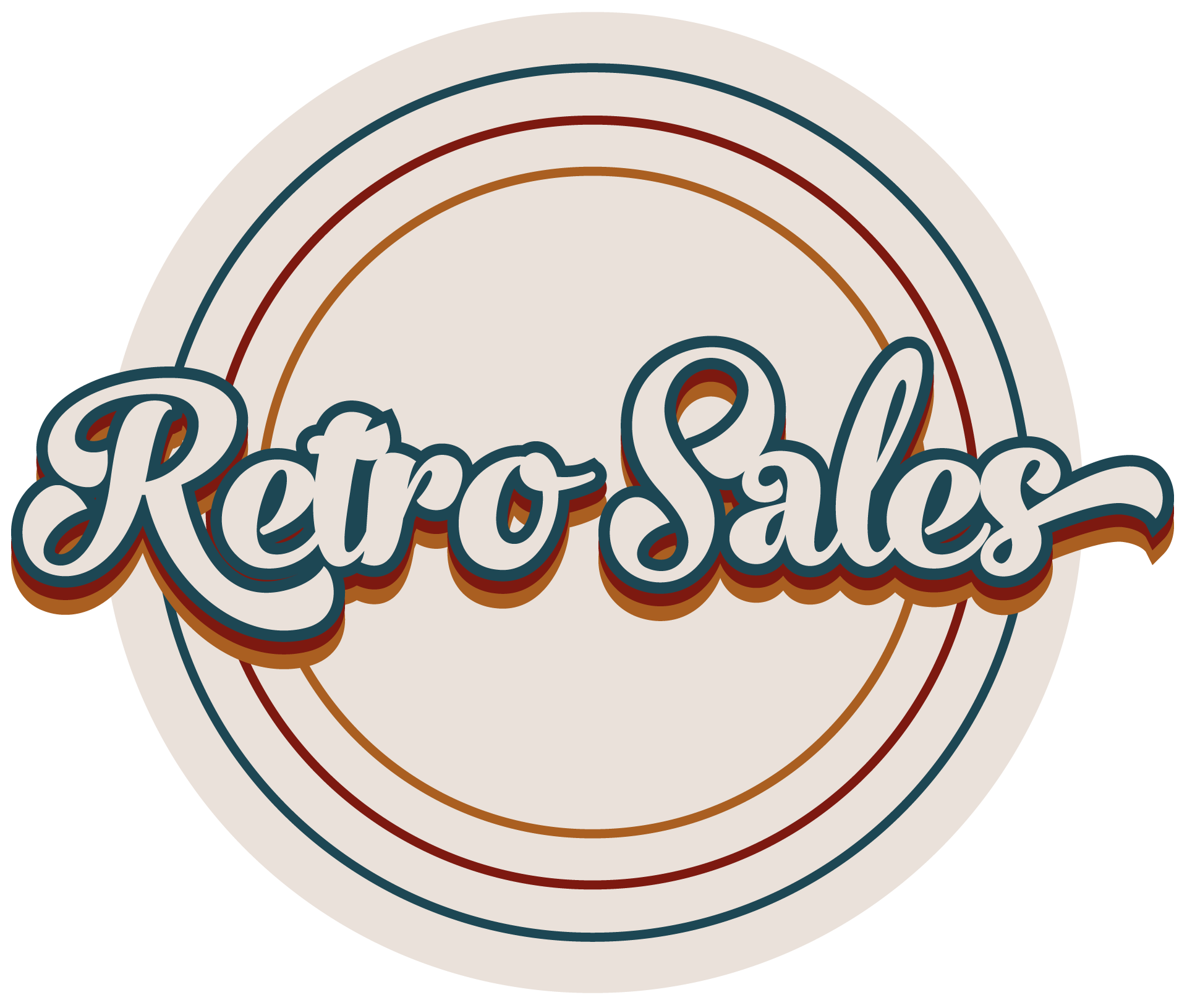Nostalgia has become an integral part of modern life, with people from all walks of life embracing their past and cherishing memories of bygone eras. But what drives this timeless longing for a simpler time? Is it merely a sentimental yearning for a lost era, or is there something more profound at play? As we delve into the world of nostalgic lifestyle, we’ll explore the complex psychology behind these feelings, examining the ways in which they shape our identities, influence our behaviors, and inform our cultural narratives.

Is Anemoia a Real Thing?
Anemoia is a term that has gained popularity in recent years, particularly among linguists and psychologists.
- Anemoia refers to a strong sense of nostalgia or wistfulness for a particular place or time period that one has never experienced personally.
- This phenomenon is often described as a bittersweet longing for something that may have never existed or was never part of one’s own life.
The Science Behind Anemoia
Research suggests that anemoia is closely tied to the human brain’s ability to process and recall memories, as well as its capacity for emotional connection and empathy.
- Studies have shown that people who experience anemoia tend to have a stronger sense of imagination and creativity, which allows them to vividly imagine and relive experiences that are not their own.
- Additionally, individuals who experience anemoia often report feeling a deep sense of connection to others who share similar experiences or emotions, highlighting the social aspect of this phenomenon.
Examples of Anemoia
Anemoia can manifest in various ways, from a fascination with historical events or cultural movements to a longing for a particular era or style of music.
- For example, someone might feel a strong sense of nostalgia for the 1920s, despite having never lived during that time period.
- Others might experience anemoia for a particular type of music, such as jazz or classical, and feel a deep emotional connection to the artists and eras associated with it.
Conclusion
Anemoia is a complex and multifaceted phenomenon that continues to fascinate researchers and the general public alike.
While it may seem like a romanticized notion, anemoia highlights the power of the human imagination and our capacity for emotional connection and empathy.
Nostalgic Life
Nostalgia is a sentimental longing for the past, deeply rooted in our memories and experiences.
- The term nostalgia originates from the Greek words for return and pain, highlighting its complex emotional nature.
- Over time, nostalgia has evolved from being associated with homesickness to a more positive emotion, often triggered by activities like watching old movies, listening to music from our youth, or reminiscing with loved ones.
- This shift towards a more positive connotation can be attributed to the growing recognition of nostalgia as a coping mechanism for stress, anxiety, and uncertainty.
Retro Sales understands the significance of nostalgia in our lives and strives to create a platform that celebrates the charm of yesteryear.
- We offer a curated collection of vintage items and collectibles, allowing customers to relive fond memories and discover new treasures.
- Our blog features articles on retro culture, nostalgia, and vintage trends, providing readers with valuable insights and stories that highlight the beauty of the past.
- By fostering a community that values and celebrates the past, we aim to create a space where people can come together and share their love for nostalgia.
In addition to our own platform, there are several other websites and communities that cater to nostalgia enthusiasts, including:
- Vintage Fashion Guild, which showcases rare and unique fashion pieces from past decades.
- The Vintage Computer Forum, a community dedicated to preserving and sharing knowledge about vintage computers and technology.
- Retrofuturism, a website that explores the intersection of nostalgia and futurism, featuring articles and art inspired by retro-futuristic themes.
As a nostalgia enthusiast myself, I appreciate the importance of preserving our collective memory and celebrating the past in all its forms.
Embracing Nostalgia in Our Daily Lives
Nostalgia can have a profound impact on our mental health and well-being, serving as a source of comfort and inspiration during difficult times.
- Engaging in nostalgic activities, such as watching old movies or listening to music from our youth, can evoke feelings of happiness and relaxation.
- Nostalgia can also inspire creativity and innovation, as we draw upon our past experiences and memories to inform our present and future endeavors.
- Furthermore, nostalgia can foster a sense of connection and community, as we share our memories and experiences with others who understand and relate to our nostalgia.
At Retro Sales, we believe that nostalgia is a powerful force that can bring people together and enrich our lives in meaningful ways.
Join the Nostalgic Journey
Whether you’re a seasoned collector or simply someone who appreciates the charm of the past, we invite you to join us on this nostalgic journey.
Explore our curated collection of vintage items and collectibles, read our blog articles on retro culture and nostalgia, and connect with like-minded individuals who share your passion for the past.
Together, let’s celebrate the beauty of nostalgia and preserve our collective memory for generations to come.

The Psychology Behind Nostalgia
Nostalgia is a complex emotion that has been studied extensively in the field of psychology.
- One theory suggests that nostalgia serves as a coping mechanism for people dealing with stress, anxiety, or uncertainty in their lives.
- Research has shown that nostalgia can have a positive impact on mental health, reducing symptoms of depression and anxiety.
- Nostalgia can also play a role in shaping our sense of identity and self-concept, helping us to understand who we are and where we come from.
- Furthermore, nostalgia can influence consumer behavior, with many people seeking out products and experiences that evoke feelings of nostalgia.
The Role of Emotions in Nostalgia
Nostalgia is often characterized by strong emotions, including happiness, sadness, and longing.
- Happiness is a common emotion associated with nostalgia, as people reflect on happy memories and experiences from their past.
- Sadness can also be a component of nostalgia, particularly when people reminisce about lost loved ones or past relationships.
- Longing is another emotion that can accompany nostalgia, as people yearn for a return to a simpler time or place.
The Impact of Technology on Nostalgia
The rise of social media and digital technology has changed the way we experience and express nostalgia.
- Social media platforms like Instagram and Facebook allow people to share and engage with nostalgic content, such as old photos and music.
- Digital technologies like virtual reality and online archives have made it possible to relive and re-experience historical events and cultural phenomena.
- However, excessive exposure to nostalgic content can also lead to feelings of disconnection and dissatisfaction with the present moment.
The Benefits of Nostalgia
Nostalgia can have several benefits, including:
- Reducing stress and anxiety
- Improving mood and overall well-being
- Providing a sense of comfort and security
- Helping to shape our sense of identity and self-concept
The Dark Side of Nostalgia
Nostalgia can also have negative consequences, including:
- Escapism: Nostalgia can serve as a means of avoiding the challenges and difficulties of the present moment.
- Negative comparisons: People may compare their current circumstances unfavorably to their past experiences, leading to feelings of disappointment and discontent.
- Loss of perspective: Excessive nostalgia can cause people to lose sight of the present moment and the opportunities available to them.

Nostalgia for Gen Z
I’m often asked what’s nostalgic for Gen Z, and my answer is always the same – it’s a mix of old-school video games, iconic TV shows, and music that defined our childhood.
- Retro Video Games: Classic consoles like Nintendo 64, PlayStation, and Sega Genesis are making a comeback, and gamers can’t get enough of them. From Super Mario 64 to The Legend of Zelda: Ocarina of Time, these timeless classics continue to captivate audiences worldwide.
- Iconic TV Shows: Who doesn’t love watching reruns of “Friends,” “The Office,” or “Stranger Things”? These beloved shows have become a staple of Gen Z’s entertainment diet, offering a glimpse into the past and a sense of comfort in today’s fast-paced world.
- Music Revival: Vinyl records are experiencing a resurgence, and artists like Taylor Swift, Billie Eilish, and Harry Styles are embracing their roots by releasing music inspired by the 80s and 90s. This musical nostalgia has created a new wave of fans who appreciate the artistry and craftsmanship behind these classic sounds.
- Vintage Fashion: Gen Z is obsessed with sustainable fashion, and what’s more eco-friendly than shopping second-hand? Thrift stores, consignment shops, and online marketplaces are filled with unique, one-of-a-kind pieces that reflect the era’s style and flair.
- Retro Toys and Collectibles: From Pokémon cards to vintage action figures, Gen Z is collecting and trading these nostalgic items like never before. These small tokens of the past bring joy and a sense of connection to the people who grew up with them.
At Retro Sales , we’re passionate about preserving the memories of yesterday while inspiring creativity and innovation for tomorrow. Our curated selection of vintage items and collectibles is the perfect destination for anyone looking to tap into the nostalgia of Gen Z.
The Most Nostalgic Generation
I’m often asked which generation is the most nostalgic, and my answer is always the same – it’s a tie between Millennials and Gen X.
- Millennials, born between 1981 and 1996, have grown up with the internet and social media, making them highly susceptible to nostalgia-based advertising.
- Gen X, born between 1961 and 1980, has experienced significant cultural and technological changes throughout their lives, making them equally nostalgic for the past.
Nostalgia can be a powerful tool for marketers, providing a sense of emotional escapism and authenticity to a generation overwhelmed by modern media environments.
Retro Sales: A Platform for Vintage Enthusiasts
Retro Sales is a dedicated platform for vintage enthusiasts and collectors, offering a curated collection of vintage items and collectibles alongside blog content focused on retro culture, nostalgia, and vintage trends.
- The site aims to connect users with stories and insights that celebrate the charm of yesteryear, offering both a marketplace for unique vintage finds and a resourceful blog for those interested in retro lifestyle, collectibles, and the revival of classic styles.
- Retro Sales fosters a community that values and celebrates the past through curated treasures and nostalgic content.
Competitors in the Market
While there are several competitors in the market, some notable ones include:
- eBay , a popular online marketplace for buying and selling vintage items and collectibles.
- Pinterest , a social media platform that allows users to discover and save ideas for retro-inspired projects and decor.
- Thrift Store Cowboy , a website that showcases vintage clothing and accessories from thrift stores around the world.
Why Choose Retro Sales?
At Retro Sales, we pride ourselves on offering a unique and curated selection of vintage items and collectibles, along with expert advice and guidance from our team of vintage enthusiasts.
- We believe that nostalgia is a powerful force that can bring people together and inspire creativity and self-expression.
- Our mission is to provide a platform for vintage enthusiasts to connect, share, and celebrate their love of the past.
About Us
Retro Sales is a community-driven platform that values and celebrates the past. We’re passionate about sharing our knowledge and expertise with others, and we’re committed to providing a high-quality shopping experience for our customers.

What is Gen Z Most Stressed About?
Gen Z, born between 1997 and 2012, is often referred to as the most stressed generation due to various factors affecting their mental health and well-being.
- Mental Health Issues: Data suggests that Gen Z workers struggle with anxiety, depression, and other mental health concerns, which can impact their productivity and overall job satisfaction.
- Hostile Work Environments: Many Gen Z employees face bullying, harassment, and toxic workplaces, leading to increased stress levels and decreased job security.
- Lack of Work-Life Balance: With the rise of remote work, Gen Z often experiences blurred boundaries between personal and professional life, resulting in burnout and exhaustion.
- Financial Stress: Gen Z faces significant financial pressures, including student loan debt, rising living costs, and limited job opportunities, contributing to their overall stress levels.
According to recent studies, Gen Z is more likely to experience stress related to social media, technology addiction, and environmental concerns compared to previous generations.
Key Factors Contributing to Gen Z Stress:
- Social Media Pressure: Social media platforms can create unrealistic expectations and promote comparison, leading to feelings of inadequacy and low self-esteem among Gen Z individuals.
- Technology Addiction: Excessive screen time and constant connectivity can lead to digital fatigue, decreased attention span, and increased stress levels.
- Environmental Concerns: Gen Z is growing up during a time of climate change, pollution, and environmental degradation, causing anxiety and worry about the future.
Conclusion:
Gen Z’s stress levels are influenced by a combination of factors, including mental health issues, hostile work environments, lack of work-life balance, and financial stress. Understanding these challenges is crucial for employers, policymakers, and individuals to develop effective solutions and support systems for this generation.

0 Comments